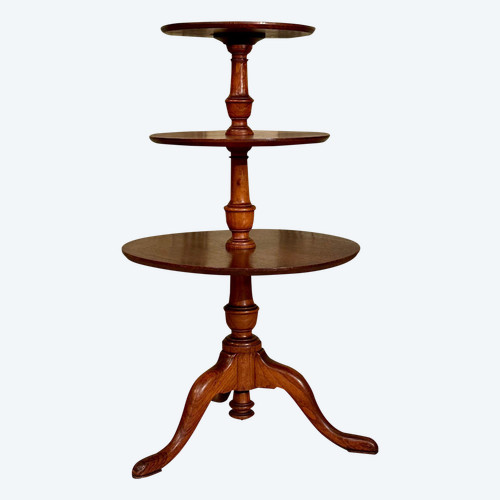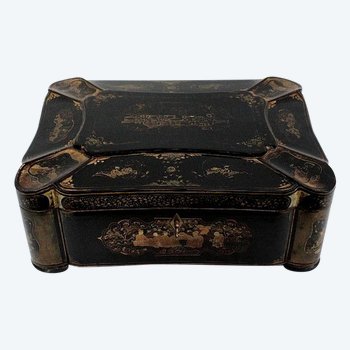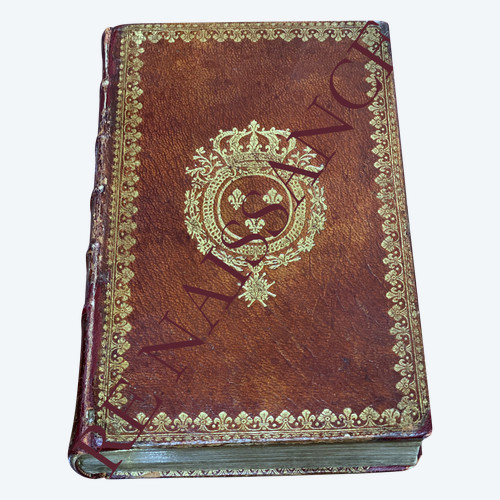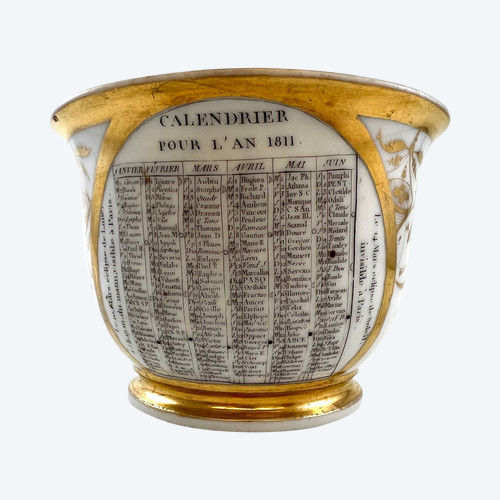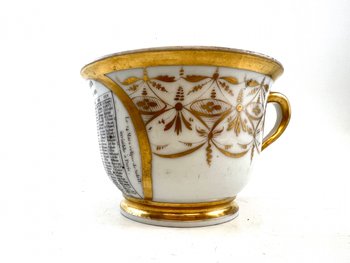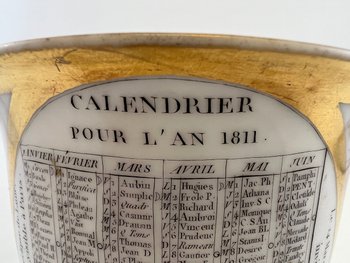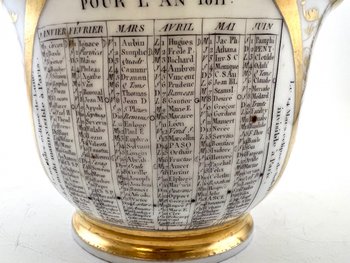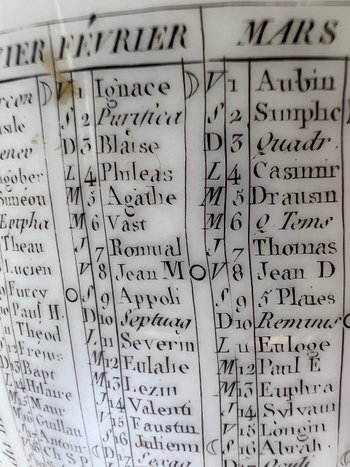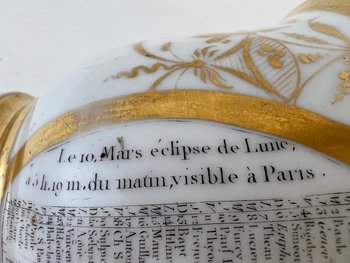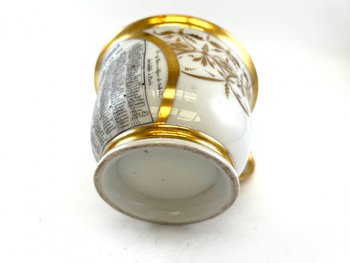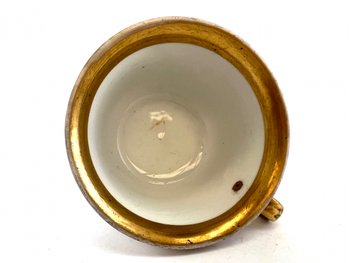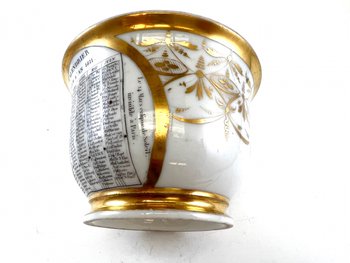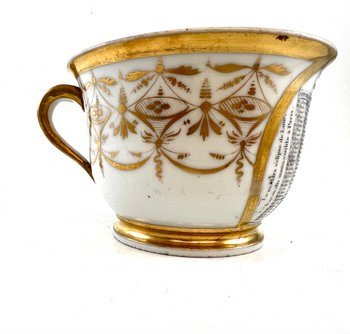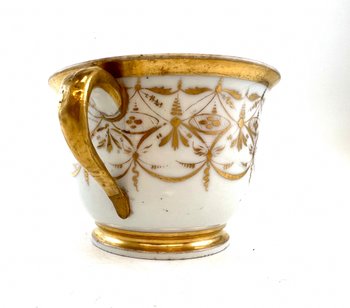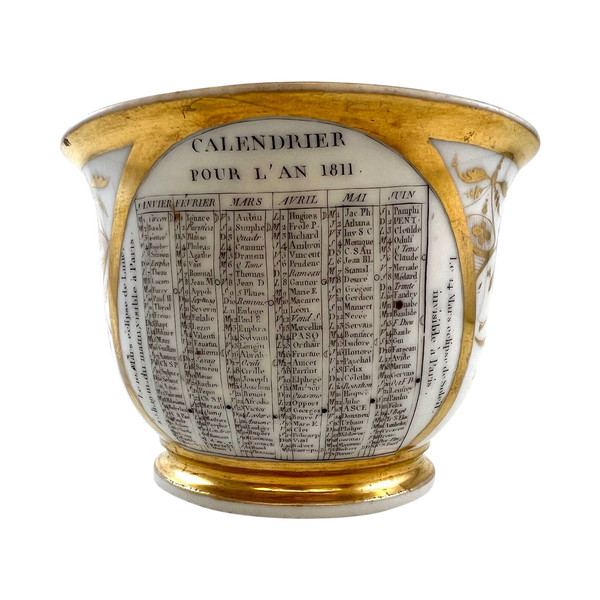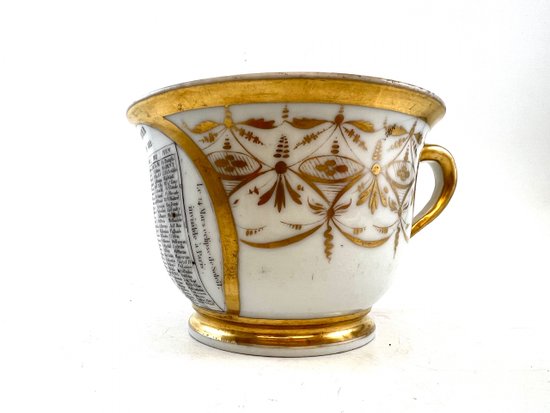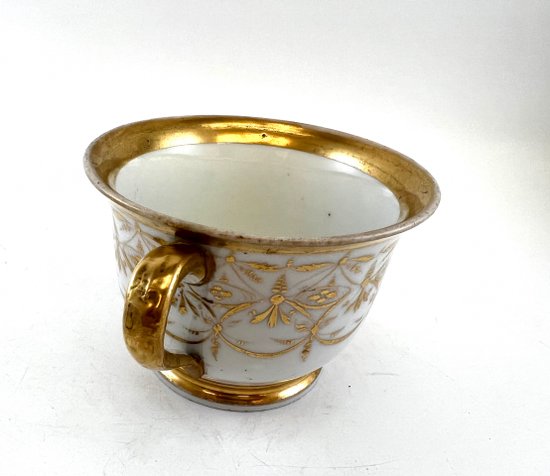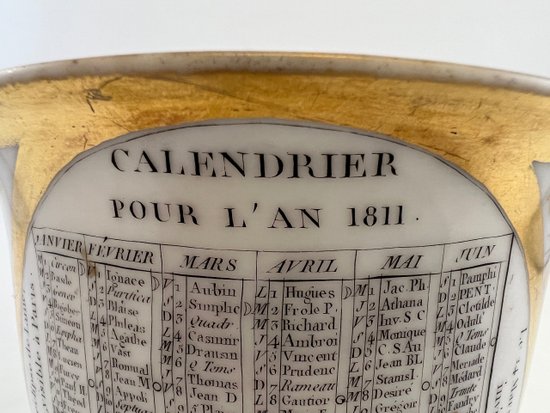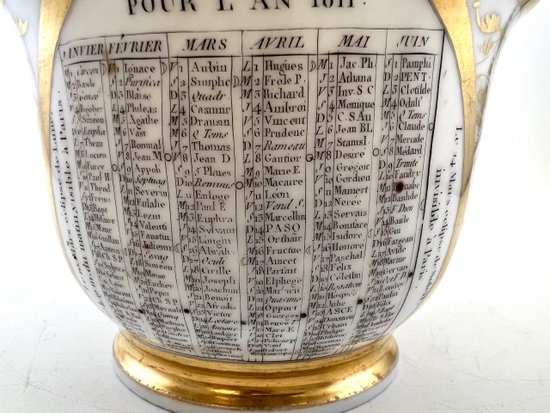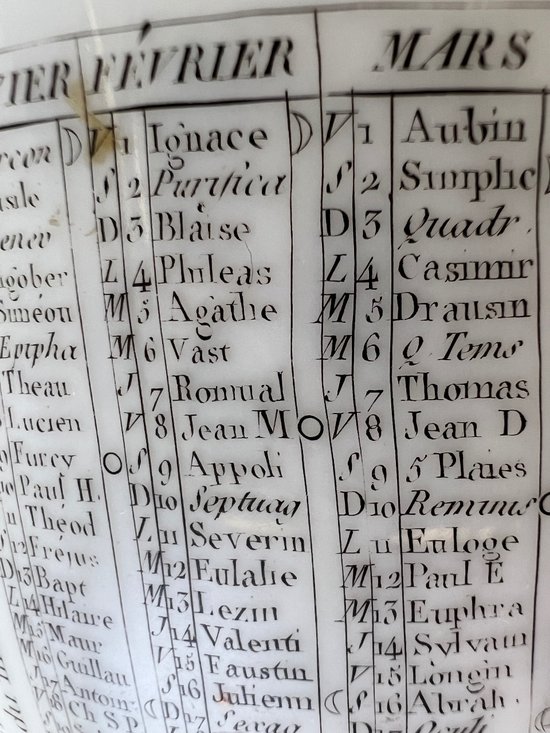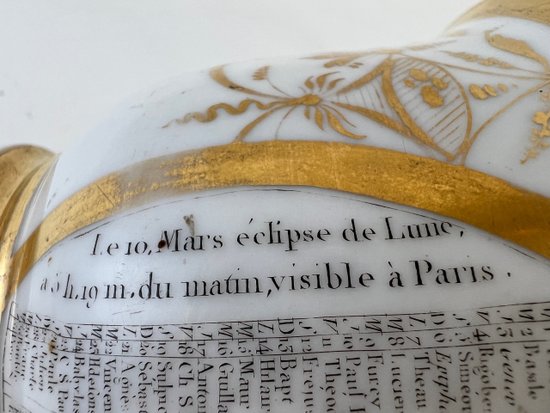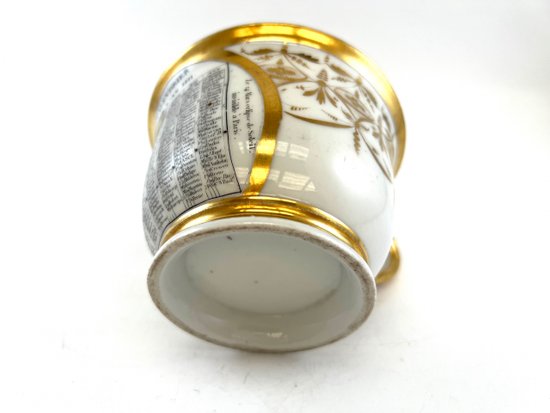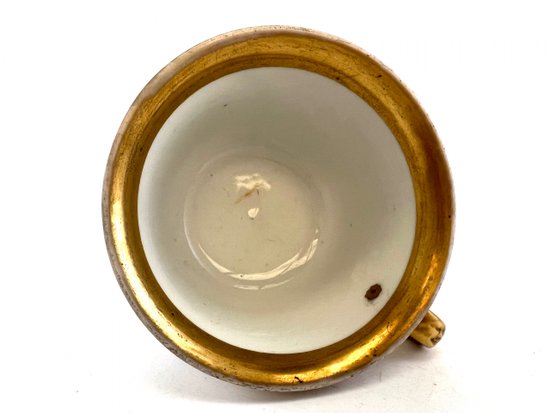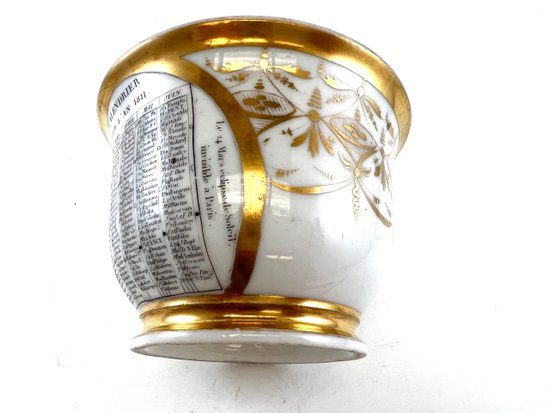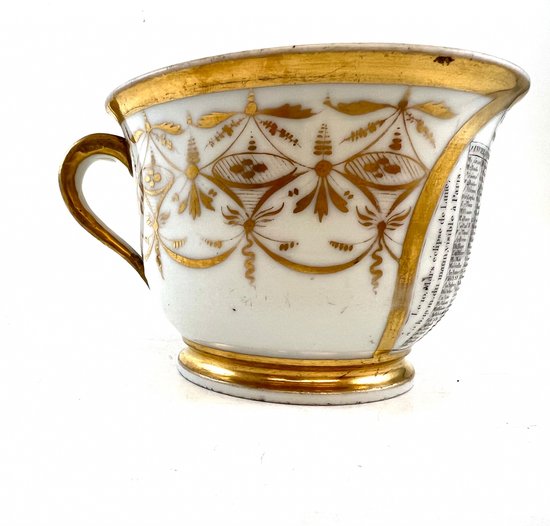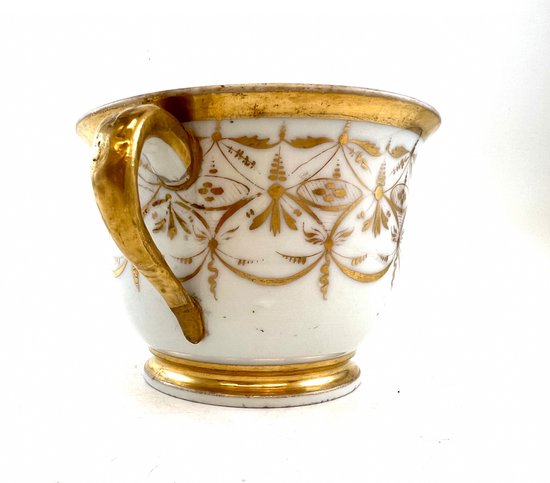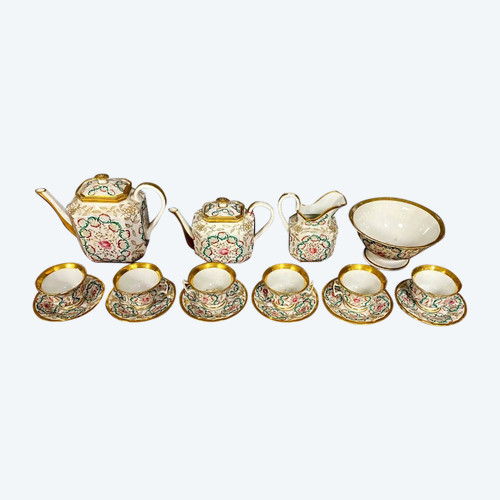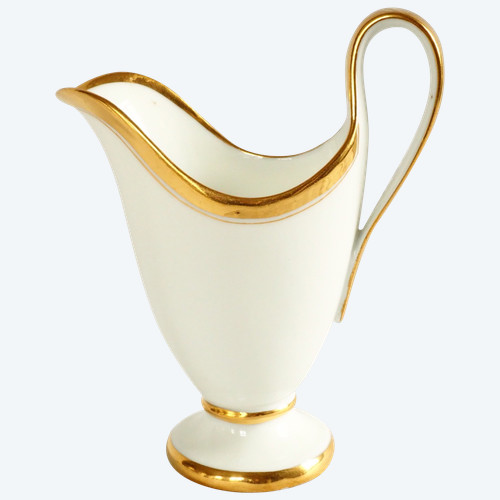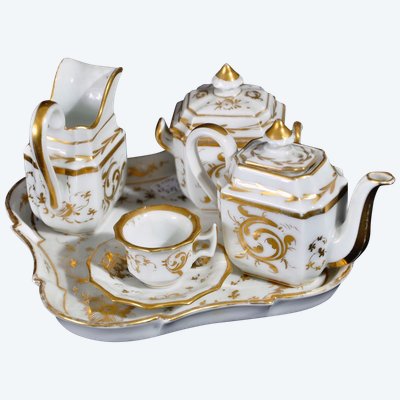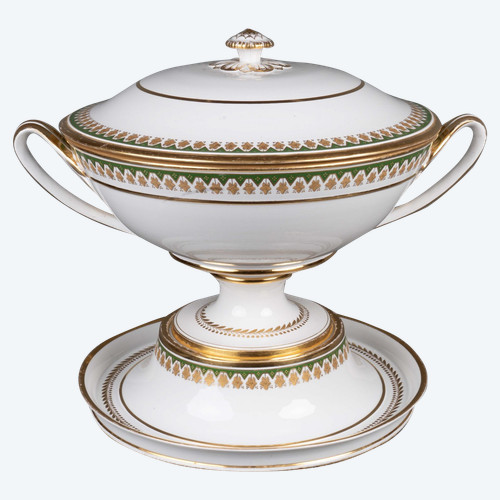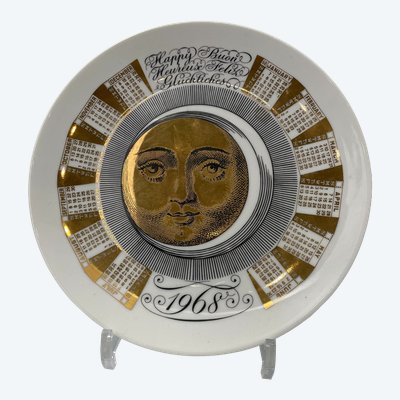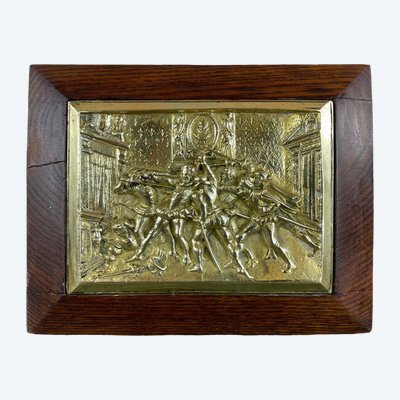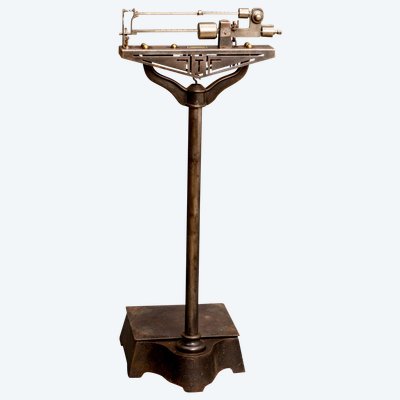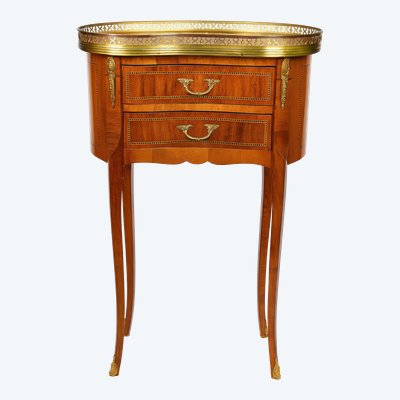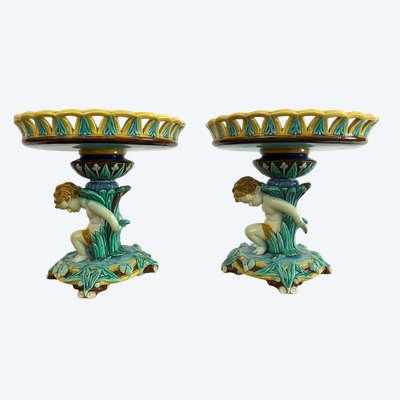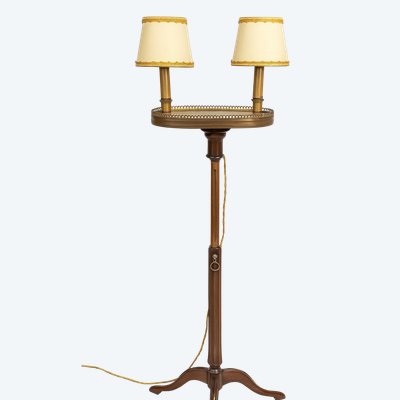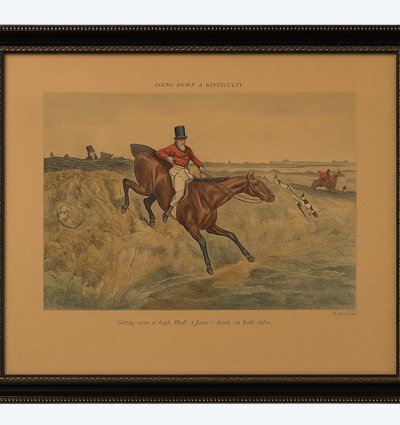This description has been translated and may not be completely accurate. Click here to see the original
Beautiful Paris porcelain cup featuring a calendar for 1811 on the front of its cup. "Calendar for the year 1811".
This cup is over 200 years old and in very good condition considering its age.
The cup is nicely decorated.
On March 20, 1811, 101 cannon shots announced to the Parisians the birth of the long awaited heir by Napoleon I.
What happened in 1811?
This is the occasion to review our calendar
January 1, 1811 - The Penal Code and the Code of Criminal Procedure came into force. For the Empress Marie-Louise's birthday, Napoleon I offered her a medallion containing his portrait.
February 2, 1811 - The President of the United States of America, James Madison, summons the British government to cease its controls on American ships. - February 11, 1811 - President Madison prohibits all trade with the United Kingdom. - February 20, 1811 - François-René de Chateaubriand is elected to the French Academy, in the chair of the regicide Marie-Joseph Chénier; his reception speech, which attacks his predecessor, is banned. - 25 February 1811 - Napoleon refused the Franco-Swedish alliance proposed by Jean-Baptiste Bernadotte. - February 28, 1811 - In a letter to the Tsar, Napoleon noted that their alliance had broken down.
11 March 1811 - Capture of Badajoz by Soult. - 12 March 1811 - Victory of Ney over the English of Arthur Wellesley at Redinha. - March 15, 1811 - Napoleon convened a second ecclesiastical commission in Paris to prepare a council of the episcopate of the Empire, which he called the "Council of the West", claiming to be based on Charlemagne. - March 20, 1811 - Birth in the Tuileries Palace of a male child, named Napoleon François Charles Joseph Bonaparte, who received the title of King of Rome by virtue of the sénatus-consulte of February 17, 1810.
April 4, 1811 - Wellington's offensive. André Masséna had to evacuate Olivença. - April 11, 1811 - The Spanish guerrillas attacked the French army at the pass of Avis (fight of Guisando). - 15 April 1811 - Abolition of the feudal regime in Illyria. - 26 April 1811 - The bishops of the Empire were convened in a national council. - 30 April 1811 - Martin Michel Charles Gaudin, Minister of Finance, made an exaggeratedly optimistic assessment of the economic crisis in Britain.
May 3, 1811 - Masséna's victory over Wellington at Fuentes de Oñoro. - May 4, 1811 - Louis Gabriel Suchet laid siege to Tarragona - May 7, 1811 - Construction of the Palace of the King of Rome began on the hill of Chaillot, decided in part to give work to the workers hit by the economic crisis that also affected France. - May 10, 1811 - Masséna was replaced by Auguste Viesse de Marmont at the head of the army of Portugal. - 16 May 1811 - Soult was beaten at La Albuera by an Anglo-Hispanic-Portuguese army. - May 20, 1811 - After having indicated to an ecclesiastical commission sent by the Emperor that he was ready for a compromise, Pius VII went back on his decision as soon as the bishops had left. - 22 May 1811 - The Emperor and the Empress left Rambouillet for an official trip in the West: Houdan, Dreux, Caen, Cherbourg. - May 25, 1811 - A French convoy was attacked and destroyed by Spanish guerrillas in Salinas, Biscay. The military situation in Spain continued to worsen.
4 June 1811 - Napoleon returned to the Court. - 5 June 1811 - Napoleon received Armand de Caulaincourt, who had just left his embassy in Saint Petersburg; the ambassador warned him of the dangers of a military campaign in Russia. - 9 June 1811 - The King of Rome was baptized. - 17 June 1811 - The national council opened at Notre-Dame; it was composed of ninety-five prelates, including forty-two Italians. - 18 June 1811 - Wellington withdrew to Portugal - 28 June 1811 - Suchet took Tarragona.
July 10, 1811 - After having declared the consent of the Pope indispensable to the validity of its decrees, the council was dissolved by order of Napoleon. - July 12, 1811 - Arrested the three bishops most opposed to the Emperor: Mgr. de Boulogne, bishop of Troyes, Mgr. de Broglie, bishop of Ghent, Mgr. - 27 July 1811 - An imperial decree regulated the institution of bishops in the sense of a reduction of the rights of the Pope. - July 27, 1811 - A million is allocated by decree to the embellishments of the city of Rome.
15 August 1811 - In front of the diplomatic corps, Napoleon I threatened the Russian ambassador, Prince Alexander Borissovitch Kurakin, with war following the Tzar's decision to reopen its ports to English ships. - August 28, 1811 - Poor harvests led to the creation of a council of subsistence, intended to deal with the threat of food shortages.
19 September 1811 - Napoleon left for Holland. - 20 September 1811 - Pius VII accepted the new rules for the institution of bishops. - 30 September 1811 - Marie-Louise joined the Emperor in Antwerp.
18 October 1811 - Creation, in Amste
Ref: 95BP2VNVQM
 Mute Servant Work from the 19th Century
450 € EUR
Mute Servant Work from the 19th Century
450 € EUR
 Ducks in pond raising
180 € EUR
Ducks in pond raising
180 € EUR

